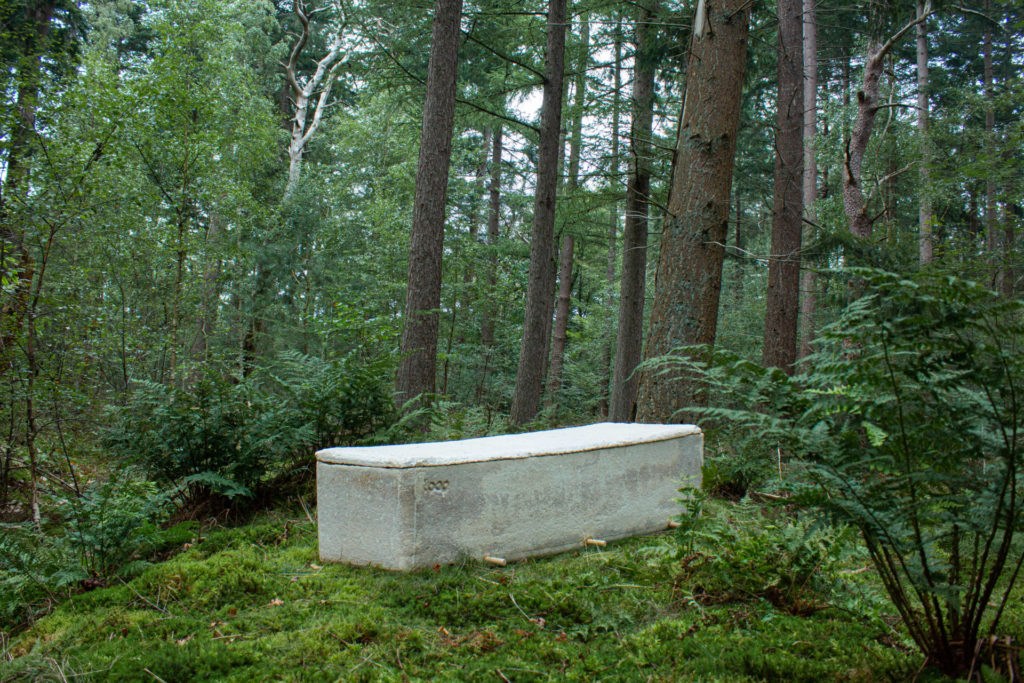A Namur-based company unveiled a groundbreaking approach to burial that prioritises respect both for the deceased and the environment during All Saints' Day earlier this week.
After three years of dedicated research and development, the company named Sepelio was set to introduce its patented "ecological funeral module".
The minds behind this pioneering burial solution, Christophe Gretz and Maxime Ravet, have been in the funeral industry for years, notably conducting exhumations in disused burial plots on behalf of municipalities.
Gretz shared a shocking statistic from their recent campaign conducted between November 2022 and April 2023, revealing that they collected a staggering 70 tonnes of waste.
This figure excludes the weight of monuments and human remains and primarily consists of discarded items such as plastic sheeting, polyester or treated wood coffins, metal handles, synthetic clothing and shoes, and various symbolic objects surrounding the deceased. The pair were adamant that such practices were unsustainable.
How does it work?
Gretz and Ravet told L’Avenir that conventional burial methods not only fail to respect the environment but also hinder the natural decomposition process of the human body. They particularly emphasised the issue of impermeable coffins and waterproof body bags, which prevent the organic decay that is vital for the ecological cycle.
Their solution, an innovative "ecological funerary module", takes the form of a wooden structure embedded in the ground, housing a coffin constructed from recycled cardboard or untreated wood.
The space surrounding the coffin, both above and below, is filled with a specially formulated soil mixture designed to facilitate the natural decomposition of the body, regardless of the soil conditions.
This entire process occurs within the wooden module, which gradually disintegrates over time. The burial site is adorned with a carpet of sedum (a type of grass) and an assortment of plants, with a small stone stele serving as a marker for the deceased.
"According to our estimates, it takes approximately five years for the body to fully decompose, excluding the bones, of course. This approach not only respects the environment but also helps revitalise cemetery soils, which are typically nutrient-poor and contaminated," Gretz said.
Related News
- 'Aquamation': Flanders to pilot greener alternative to cremation
- A costly goodbye: Funeral prices surge in Belgium
Moreover, the module offers economic advantages, with the company assuring potential clients that their innovative solution is between 25% and 30% more cost-effective than traditional burial methods.
Sepelio's introduction of this environmentally conscious and cost-effective burial option marks a significant step forward in the funeral industry, offering a more compassionate and sustainable approach to honouring the deceased while respecting the planet.

